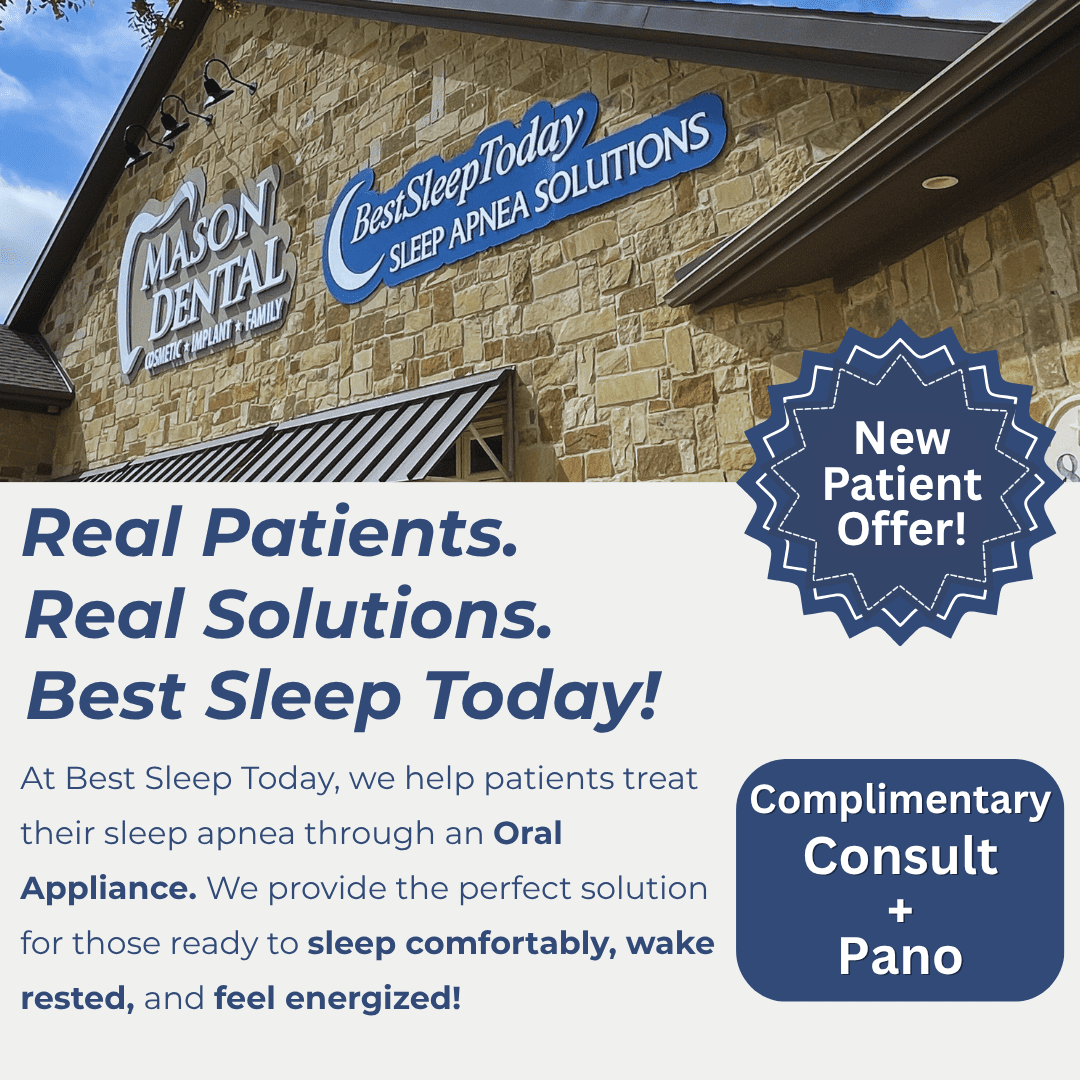Have you or a loved one been told you “saw logs” during the night? While an occasional snore might feel harmless (or just annoying to your partner), it could also point to a more serious condition—sleep apnea. Knowing the difference can significantly impact your health and well-being.

At Best Sleep Today in Grapevine, TX, Dr. Scott Mason is dedicated to helping sleep sufferers like you diagnose and treat their conditions in a comfortable and caring environment. But first, how can you tell if your snoring is just snoring, or if it’s something more?
What Causes Snoring?
Snoring happens when air flows through relaxed tissues in your throat, causing them to vibrate as you breathe. Several factors contribute to snoring, including:
- Sleeping position (e.g., lying on your back)
- Alcohol consumption before bed
- Nasal congestion
- Being overweight
Occasional snoring is typically harmless, though it can disrupt your or your partner’s sleep. But in some cases, snoring can be a red flag for obstructive sleep apnea (OSA), a serious sleep disorder that requires medical attention.
What Is Sleep Apnea?
Sleep apnea is a condition where your breathing repeatedly stops and starts during sleep. Obstructive sleep apnea, the most common form, occurs when the muscles in the back of your throat relax too much, narrowing or blocking your airway.
Key symptoms of sleep apnea include:
- Loud, persistent snoring
- Pauses in breathing during sleep (often noticed by a partner)
- Gasping or choking during sleep
- Excessive daytime sleepiness or fatigue
- Morning headaches or dry mouth
If left untreated, sleep apnea can lead to serious health complications, such as high blood pressure, heart disease, diabetes, and even an increased risk of stroke.
Is My Snoring a Problem?
Not all snoring is cause for concern, but there are some signs to watch for:
- Volume: Loud, disruptive snoring that’s frequent or chronic might be a symptom of sleep apnea.
- Pauses in Breathing: If someone tells you they notice your breathing stops throughout the night, it’s important to take this seriously.
- Daytime Fatigue: Feeling exhausted even after a full night of sleep could mean your snoring is disrupting your sleep cycles.
If you’re experiencing any of these signs, it may be time to evaluate your snoring more closely.
Diagnosing Sleep Apnea
Diagnosing sleep apnea often requires a professional assessment. At Best Sleep Today, Dr. Scott Mason prioritizes patient comfort when conducting sleep apnea evaluations. Testing might include:
- Home Sleep Studies: Convenient and easy, these studies measure your breathing, oxygen levels, and sleep patterns in your own bed.
- Sleep Center Testing: For more complex cases, testing at a sleep center may provide a detailed analysis of your sleep and help confirm a diagnosis.
By identifying sleep apnea early, Dr. Mason can recommend tailored solutions to restore your sleep—and your quality of life.
Take Control of Your Sleep
Whether your snoring is mild or severe, understanding the difference between snoring and sleep apnea is key to safeguarding your health. If you suspect your snoring might be a bigger issue, don’t ignore the signs. Contact Best Sleep Today in Grapevine, TX, and make an appointment with Dr. Scott Mason. With his expertise and patient-first approach, restful nights are closer than you think!
Best Sleep Today
801 W Wall St, Suite 100 Grapevine, TX 76051
Phone: 817-623-9699



